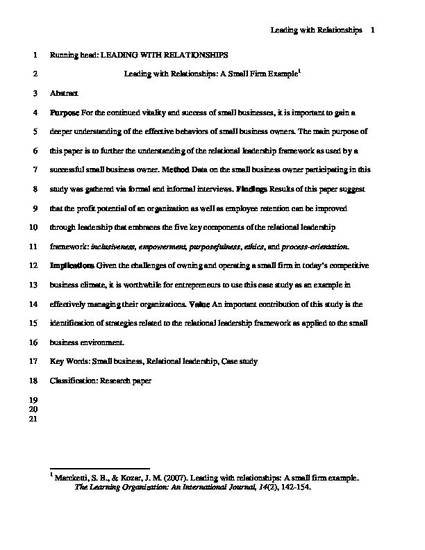
Purpose – For the continued vitality and success of small businesses, it is important to gain a deeper understanding of the effective behaviors of small business owners. The main purpose of this paper is to further the understanding of the relational leadership framework as used by a successful small business owner.
Design/methodology/approach – Data on the small business owner participating in this study were gathered via formal and informal interviews.
Findings – Results of this paper suggest that the profit potential of an organization as well as employee retention can be improved through leadership that embraces the five key components of the relational leadership framework: inclusiveness, empowerment, purposefulness, ethics, and process-orientation.
Practical implications – Given the challenges of owning and operating a small firm in today's competitive business climate, it is worthwhile for entrepreneurs to use this case study as an example in effectively managing their organizations.
Originality/value – An important contribution of this paper is the identification of strategies related to the relational leadership framework as applied to the small business environment.
Available at: http://works.bepress.com/sara_marcketti/14/

This is an author's final manuscript of an article from The Learning Organization 14 (2007): 142–154, doi:10.1108/09696470710727005.